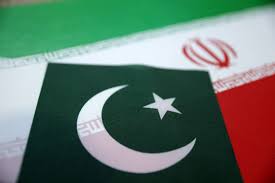
Breaking News
 Playing With Browsers to Find Google's Kryptonite
Playing With Browsers to Find Google's Kryptonite
 $349 165Ah Redodo Battery Teardown: The Company Responds!
$349 165Ah Redodo Battery Teardown: The Company Responds!
 Joel Salatin: Alternative Chicken Feed
Joel Salatin: Alternative Chicken Feed
Top Tech News
 Aptera's Solar EV Is Finally Ready For Production. Watch The Livestream Here
Aptera's Solar EV Is Finally Ready For Production. Watch The Livestream Here
 In-Wheel EV Hub Motors Could Be A Game-Changer. Why Aren't They Here Yet?
In-Wheel EV Hub Motors Could Be A Game-Changer. Why Aren't They Here Yet?
 Mars Terraforming Within 40 Years for Plants and No Spacesuits
Mars Terraforming Within 40 Years for Plants and No Spacesuits
 See-Through the Future of Display
See-Through the Future of Display
 $849 Wattcycle Server Rack Battery?! Quick Review...
$849 Wattcycle Server Rack Battery?! Quick Review...
 After Trump Threatened Apple, His Sons Announce a Made-in-America Phone
After Trump Threatened Apple, His Sons Announce a Made-in-America Phone
 "We're Not Ready for AI Simulation" | Official Preview
"We're Not Ready for AI Simulation" | Official Preview
 $839 Ecoworthy Version 3: Best Value 48V Battery for 2025?
$839 Ecoworthy Version 3: Best Value 48V Battery for 2025?
 Feature-packed portable learning lab for makers puts AI within reach
Feature-packed portable learning lab for makers puts AI within reach
Pakistan Signals 'Unwavering Support' for Iran Amidst Israel-US Aggression

In his statements, the Permanent Representative of Pakistan to the United Nations, Ambassador Asim Iftikhar Ahmad, vehemently denounced the "unjustified and illegitimate" aggression perpetrated by Israel against Iran, reiterating that Islamabad remained firmly in solidarity with the Iranian government and its citizens.
On June 18th, the White House hosted a historic event as it marked the first time an American president welcomed a Pakistani chief of army staff in a private setting. Despite decades of military collaboration, the visual significance of this meeting was unprecedented. The backdrop of escalating tensions between Israel and Iran added to its importance, as President Donald Trump met with Pakistan Field Marshal Asim Munir for a private luncheon in the Cabinet Room, with no Pakistani civilian officials present. Notably absent were an ambassador or foreign minister; only the army chief and Pakistan's intelligence chief, Lt Gen Asim Malik, attended. Trump was joined by Secretary of State Marco Rubio and Special Representative for Middle Eastern Affairs Steve Witkoff, underscoring the strategic importance of the meeting for both nations. However, what was not reported is that Pakistan's army chief, Field Marshal Asim Munir, was quietly summoned to the US Central Command headquarters in Florida for reasons that have remained unclear.
Last weekend, in an interview aired on Iranian state television, Mohsen Rezaei, a prominent member of the Iranian National Security Council and a high-ranking official in the Islamic Revolutionary Guard Corps (IRGC), asserted that Pakistan would initiate a nuclear strike on Israel should Israel deploy a nuclear bomb against Iran. While Pakistan has denied the claim and has not issued any statements regarding the potential use of nuclear arms against Israel, it has, however, expressed support for Iran in its conflict with Israel. Although we can speculate on the true reason behind the visit of Pakistan's Field Marshal and Head of Intelligence to the U.S. capital, it is evident that the potential for Pakistan and China to collaborate closely with Tehran is an issue that the United States would seek to address with urgency, while simultaneously striving to draw Islamabad away from the influence of China and the Russia-led BRICS alliance. Yesterday, Pakistan's Foreign Office Spokesperson, Shafqat Ali Khan, reiterated that Pakistan is in "firm solidarity with the people of Iran" and cautioned that Israel's ongoing provocations represent a significant danger to both regional and global peace. His declaration conveyed a distinct message that Pakistan's regional obligations remain steadfast.

 How Water Recycling Works
How Water Recycling Works  How are holograms possible?
How are holograms possible?


